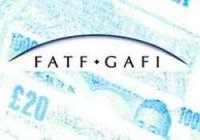-

26 February, 2010
One of the key issues of the Plenary agenda was finalizing report to the G20 on non-cooperative and/or high risk jurisdictions which the FATF has been working on since February 2009. This initiative is aimed at ensuring security and stability of the international economic system by broader compliance of countries with the AML/CFT standards, particularly FATF 40+9 Recommendations.
In its public statement the FATF has identified three categories of the high risk jurisdictions:
1. Jurisdictions subject to a FATF call on its members and other jurisdictions to apply countermeasures to protect the international financial system from the ongoing and substantial money laundering and terrorist financing (ML/TF) risks emanating from the jurisdiction:
- Iran
2. Jurisdictions with strategic AML/CFT deficiencies that have not committed to an action plan developed with the FATF to address key deficiencies as of February 2010. The FATF calls on its members to consider the risks arising from the deficiencies associated with each jurisdiction, as described below:
- Angola*
- Democratic People's Republic of Korea (DPRK)*
- Ecuador
- Ethiopia*
* Despite the FATF’s efforts, these jurisdictions have not constructively engaged with the FATF or an FSRB as of February 2010 and have not committed to the international AML/CFT standards.
3. Jurisdictions previously publicly identified by the FATF as having strategic AML/CFT deficiencies, which remain to be addressed as of February 2010:
- Pakistan
- Turkmenistan
- São Tomé and Príncipe
The FATF has also come to the decision to remove Uzbekistan from the enhanced monitoring procedure following the country’s significant progress in addressing the deficiencies in the national AML/CFT regime previously identified by the FATF. The EAG will continue to cooperate with Uzbekistan in order to enhance its AML/CFT system.
The Uzbekistan’s progress comes as a result of joint efforts undertaken by the national government and competent authorities alongside the EAG, FATF, World Bank and IMF experts.
At the same time in its Public statement the FATF identifies Turkmenistan – which is an observer in the EAG – as one the high risk jurisdictions. According to the Public statement, the FATF welcomes Turkmenistan’s continued progress in addressing its AML/CFT deficiencies, including by taking steps towards establishing a Financial Intelligence Unit (FIU). Given that the FIU is not yet operational, the FATF reiterates its 25 February 2009 statement informing financial institutions that these deficiencies constitute an ML/FT vulnerability in the international financial system and that they should take appropriate measures to address this risk. Turkmenistan is urged to continue to take steps to implement an AML/CFT regime that meets international AML/CFT standards and to work closely with the EAG and the International Monetary Fund to achieve this.
The EAG will continue assisting Turkmenistan in developing its national AML/CFT regime and addressing the deficiencies identified by the FATF.In April 2010 a high level mission to Turkmenistan will take place with participation of the FATF and EAG experts.
Alongside its Public statement, the FATF has also published information on improving global AML/CFT compliance which describes the ongoing process and refers to 20 jurisdictions with strategic AML/CFT deficiencies for which they have developed an action plan with the FATF. These countries, which have also provided a written high-level political commitment to address the identified deficiencies, include: Antigua and Barbuda, Azerbaijan, Bolivia, Greece, Indonesia, Kenya, Morocco, Myanmar, Nepal, Nigeria, Paraguay, Qatar, Sri Lanka, Sudan, Syria, Trinidad and Tobago, Thailand, Turkey, Ukraine, Yemen. The FATF recognizes the progress of these jurisdictions and will continue cooperating with them on addressing the remaining deficiencies.
In the course of the Plenary meeting the typologies report on money laundering and terrorist financing through free trade zones was also approved. In this report the FATF experts draw attention to the minimum level of regulation in free trade zones (FTZ). The report emphasizes that the number of free trade zones have increased rapidly in recent years, today there are approximately 3 000 FTZs in 135 countries around the world. FTZs offer many incentives and benefits to the companies that operate within it, such as the exemption from duty and taxes and simplified administrative procedures. However, the absence of strict regulations and transparency of the FTZs which is beneficial for legitimate businesses, also make them highly attractive for illicit actors who take advantage of this relaxed oversight to launder the proceeds of crime and finance terrorism. Through a series of cases studies, this report aims to illustrate the ways in which FTZs can be misused for money laundering and terrorist financing purposes.
The plenary has also approved of the MERs of Germany and Luxembourg and progress reports of Greece, Turkey and Aruba, Kingdom of the Netherlands.

 Login to your account
Login to your account Eng
Eng Рус
Рус